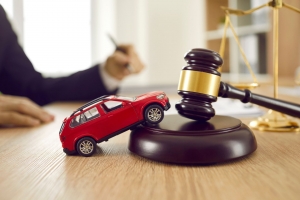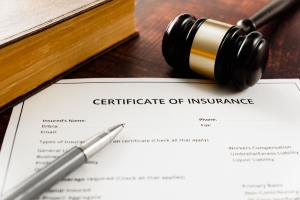Being involved in a car accident can be a disorienting and confusing experience. It's essential to know the immediate steps to take for your safety and to ensure that you preserve your legal rights. The moments following a collision are crucial for gathering key information impacting potential claims or legal action. Below we will cover the essential steps and legal considerations to remember if you are in this unfortunate situation.
Exchanging Information: What You Need to Gather

Gathering and exchanging information is a critical step following an accident. Be sure to obtain all drivers' names, addresses, phone numbers, and insurance details. Note each vehicle's make, model, registration details, and driver's license numbers. If there are passengers or witnesses, try to get their contact information.
Be careful about what you say when conversing with other drivers and witnesses. Even a simple apology could be interpreted as an admission of fault. Stick to the facts and avoid discussing the details of the accident or who might be to blame. Be respectful and cooperative, but be mindful of your words.
In some cases, like when you experience a car accident in Hillsborough NC, local laws may stipulate specific details you should collect. If law enforcement arrives on the scene, they will take over collecting information, but it's still useful for you to have your own records.
You should also collect information about the scene itself. Make note of the accident's time, date, and exact location. Observe the weather, lighting, and road conditions, as these can all be important details later on. This information is vital for insurance claims and any legal proceedings that may follow.
Reporting the Accident: When and How to Notify Authorities

Notifying the authorities is a necessary step after any car accident. In many jurisdictions, you must report an accident to local police if there are injuries, significant vehicle damage, or obstruction of traffic. Even if the accident seems minor, filing a report can be crucial, as it provides an official event record.
When the police arrive, cooperate fully with their inquiries. They will document the scene and may take statements from drivers, passengers, and witnesses. Ensure you receive a copy of the accident report - it will have a unique file number often required for insurance claims and further legal action.
If the police cannot come to the scene, which may be the case for minor fender benders, you may need to file a report at the nearest police station within a given time frame. Ensure that you understand the local laws regarding accident reporting to avoid unintentional legal complications.
Keep a record of the names and badge numbers of responding officers. This can assist you later if you need to obtain further details or clarification on the report. Remember, the report is a key piece of evidence that captures a third-party perspective of the accident's aftermath.
Documenting the Scene: Taking Photos and Notes for Evidence
After handling the safety and immediate responsibilities, it's time to document the accident scene. Use your smartphone or a camera to take photos from multiple angles. Capture the positions of the vehicles, any visible damage, traffic signs, and any skid marks on the road. This visual evidence can be beneficial later in your claim.
While your memory is fresh, write down everything you remember about the accident. Include what you did before the collision, estimated speed, traveling direction, and other observations. Jot down the sequence of events as you recall them and note any comments made by others at the scene.
If you notice any surveillance cameras in the area, such as traffic or business security cameras, note their location. They may have recorded footage that can significantly support your account of the accident. However, act quickly, as such footage is often deleted after a certain period.
These notes and photographs will create a detailed record to help establish who is at fault for the accident. They'll be valuable during negotiations with your insurance company or if you decide to pursue legal action. Keep this information organized and easily accessible, as its accuracy and availability may be key to a satisfactory resolution.
Overall, taking the right steps immediately after a car accident can protect your safety, legal rights, and insurance claims while preventing unnecessary complications. By gathering essential information, reporting the incident to the authorities, and thoroughly documenting the scene, you can ensure a smoother resolution and strengthen your position in any legal or insurance proceedings.






